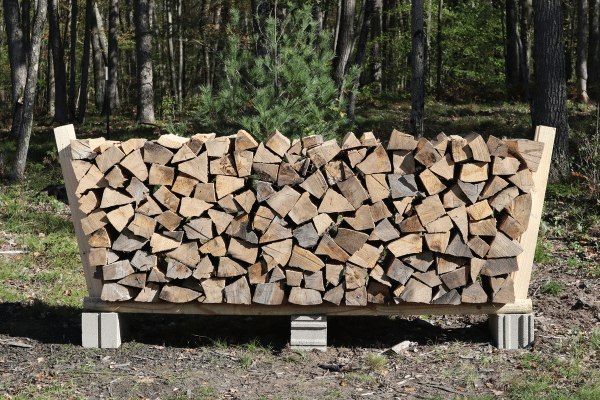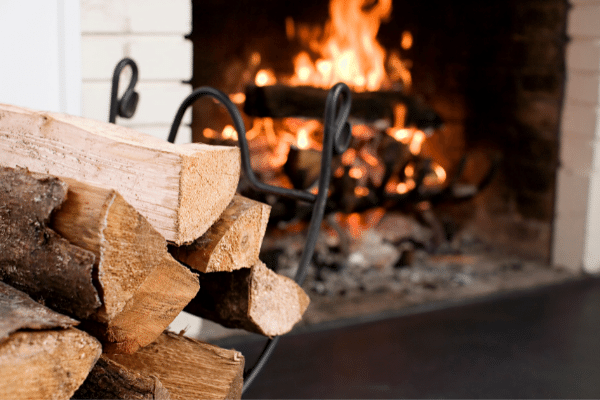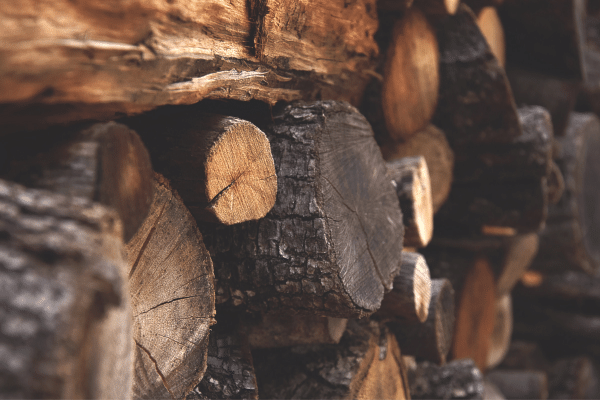- Home
- Types Of Firewood
- Where to Buy Firewood
Where To Buy Firewood
This post may contain affiliate links so I earn a commission.
Are you curious about where to buy firewood?
If so, this post will tell you everything you need to know.
Whether you need to buy firewood to fuel your wood stove or for your next camping trip, there are a few general tips to keep in mind.
Finding the right place to buy your firewood is the first place to start.
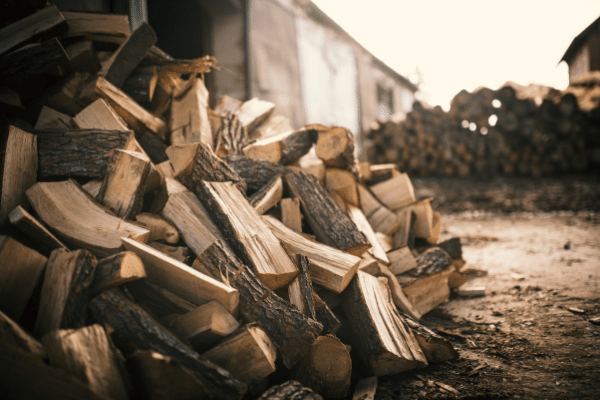
After all, the quality of your fire will only be as good as the quality of the wood you put into it!
Here’s what you need to know.
Where To Buy Firewood - Finding Cheap Wood
Before deciding to buy firewood anywhere, do your research!
Ask your friends and neighbors where they buy their firewood from - and most importantly, if they’ve been happy with it.
You can also call around to different firewood dealers and suppliers to find out how long ago the wood was split, what kind of wood it is, and where it was stored.
Here are some places to check when you’re looking for firewood.
Look Locally
The best place to buy firewood is, of course, from someone who specializes in cutting and selling firewood.
These businesses often have Internet Presences and can be found with a quick Google search.
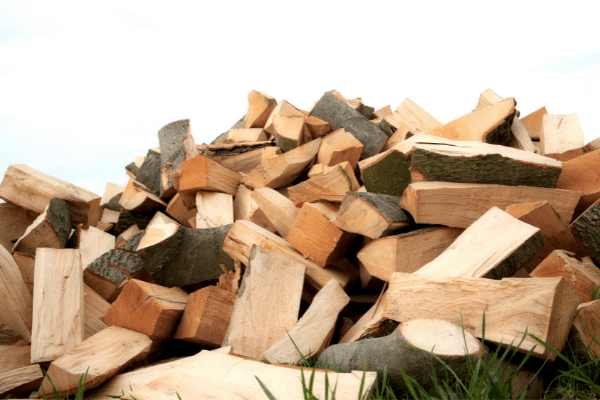
Again, asking for recommendations from people you know is always a good option, too.
Don’t be afraid of browsing websites like Facebook Marketplace or Craigslist to find firewood, either.
Firewood Swap Groups - Where To Buy Firewood
Some towns have special neighborhood swap groups that specialize in swapping firewood.
You may be able to find a decent price on firewood through these groups, so do a quick online search (or look on Facebook) to see if this is something that's available in your area.
Storm Clean-Up
Although landscaping and tree service companies aren’t always willing to part with their wood for free, it’s worth checking, especially after a storm.
They’ll be so inundated with tree material that there’s a good chance they’ll give it to you for free just to get it off their hands.
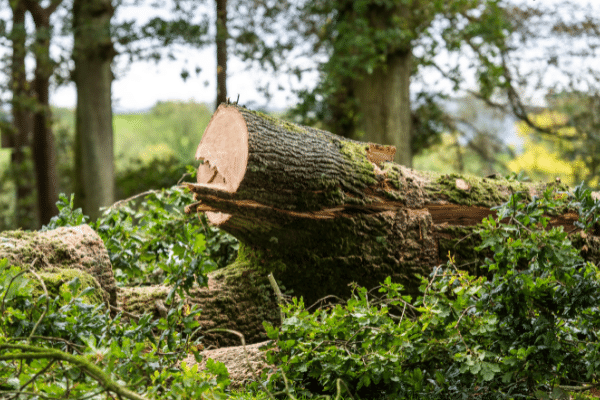
Get out there as soon as you (safely) can.
Don’t offer to do storm cleanup for neighbors yourself, unless it’s for truly philanthropic reasons and not for firewood - there is a liability issue here when you start getting up on someone’s roof with a chainsaw!
Visit Local Sawmills - Where To Buy Firewood
Pay a visit to your local sawmill to see if they have any firewood they’re willing to part with.
The goal of a sawmill is to make lumber from tree logs, not firewood, but they rarely use 100% of the tree.
Often, they pay outside companies to haul away the excess - so they may be willing to sell it to you cheap instead.
Places To Avoid When Buying Firewood
You may have heard that it's a good idea to get firewood by offering to do some free tree pruning for friends or acquaintances.
While you probably can get a good deal on firewood by doing this, the reality is that it can end up being more of a hassle than it’s worth.
Tree pruning poses a liability concern.
Remember, the tree service companies that do this for a living likely have insurance - you do not.
Similarly, you should avoid getting free firewood from construction sites.
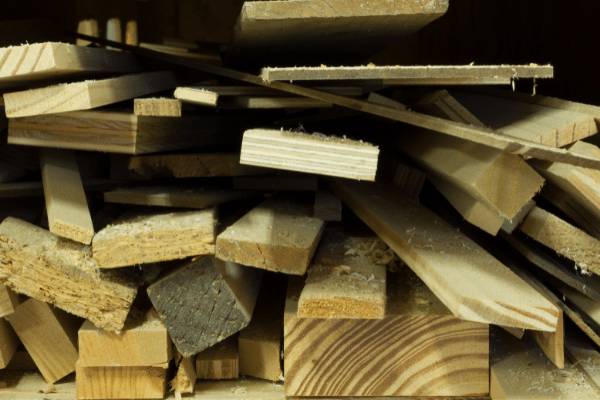
Often, construction companies will give away wood in order to avoid having to bring it to the landfill.
This is also not a smart choice - you don’t know the exact origins of the wood and it’s not a good idea to burn building materials that might be conditioned with paint, lead, and other chemicals.
You should also avoid burning pallets.
While you can often get pallets for free, these too, are often treated with dangerous chemicals.
The Best Time To Buy Firewood
Ideally, you shouldn’t be buying firewood at the beginning of the heating season (which for most people is the fall or winter).
If you wait until then to buy your wood, there’s a good chance that you’re going to be purchasing green unseasoned wood.
It could have a very high moisture content.
Some firewood dealers do sell seasoned or kiln-dried wood at this time of the year, but you’ll often pay much more money since the wood is in high demand.
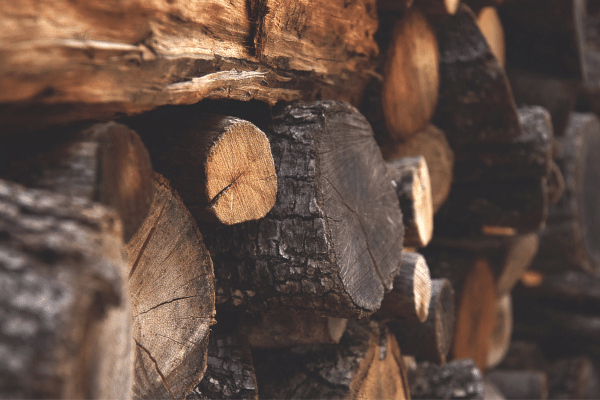
Therefore, you should plan ahead and buy your firewood at least one full season ahead.
You can purchase the wood ahead of time and stack it somewhere in which it receives low relative humidity.
Most pieces of wood will dry out in less than a year.
Some, like oak, take longer - but buying a year ahead of time is still a good general estimate to work with.
Where To Buy Firewood - Tips For Finding Quality Wood
Here are a few general tips to keep in mind when buying firewood, regardless of where you do so.
Make sure you only buy and burn wood with a moisture content below 20%.
Buying wood that is wetter than this creates more smoke.
Not only is this unpleasant to deal with when you’re sitting around a campfire, but it also forms creosote if you plan on burning the firewood inside a fireplace or wood stove.
This isn't great for your health and it can also increase the risk of an unwanted chimney fire.
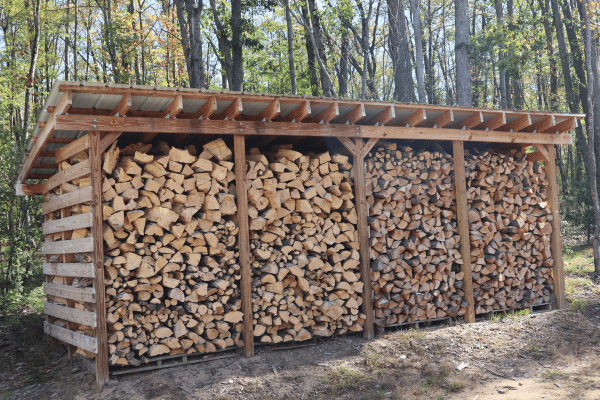
When burning unseasoned wood, it takes more energy to remove the excess water so the fire won’t burn as hot or give you as much heat.
When buying firewood, ask as many questions as possible.
Where were the trees taken from?
Is the wood competitively priced?
How long ago was it split and how long has it been allowed to season?
In some cases, you may be able to ask to see where the wood was stored.
Many firewood dealers don’t let people wander around their yards for liability concerns, but they’ll usually be happy to answer questions about their harvesting and processing practices for you.
Where To Buy Firewood - Overall
Finding the right firewood is essential if you want to have a fire that burns hot, strong, and long - and for a reasonable price, too.
Don’t wait until the last minute.
Now that you know where to buy firewood, it’s time to go place an order for next year!
